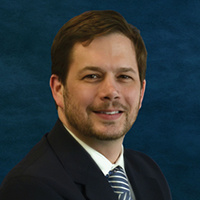Arlington Misdemeanor Lawyer, Wisconsin
Sponsored Law Firm
-
 x
x

Click For More Info:
-
Hurley Burish, S.C.
33 East Main Street Suite 400 Madison, WI 53703» view mapEstate and Criminal Defense Law A Law Firm You Can Trust
Dedicated to providing clients with the comprehensive, creative, and thorough work.
608-257-0945
Not enough matches for Arlington Misdemeanor lawyer.
Below are all Arlington Criminal lawyers.
David E. Saperstein
✓ VERIFIEDCriminal, Traffic, DUI-DWI
David E. Saperstein is first, and foremost, a trial lawyer. He is in his element, at his best, when he is advocating for his clients in the courtroom.... (more)
David M. Stegall
✓ VERIFIEDCriminal, Accident & Injury, Workers' Compensation, Animal Bite
David M. Stegall is a shareholder at Lawton & Cates who was admitted to the Wisconsin Bar in 2006 after graduating cum laude from Marquette University... (more)
Tracey Ann Wood
Criminal, DUI-DWI, Felony, White Collar Crime, Motor Vehicle
Status: In Good Standing Licensed: 32 Years
FREE CONSULTATION
CONTACTJ. Steven House
Traffic, Felony, DUI-DWI, Criminal, Misdemeanor
Status: In Good Standing Licensed: 25 Years
FREE CONSULTATION
CONTACTG Brian Brophy
Accident & Injury, Criminal, Medical Malpractice, Slip & Fall Accident
Status: In Good Standing Licensed: 28 Years
John D. Hanson
Criminal, Family Law, Children's Rights, Personal Injury
Status: Inactive Licensed: 58 Years
Steven E. Mays
Criminal
Kim M. Zion
Juvenile Law, Traffic, Divorce & Family Law, Criminal
Status: In Good Standing Licensed: 34 Years
Marinus (Rick) J.W. Petri
Dispute Resolution, DUI-DWI, Criminal, Administrative Law
Status: Inactive Licensed: 45 Years
 David Saperstein Madison, WI
David Saperstein Madison, WI Practice AreasExpertise
Practice AreasExpertise


